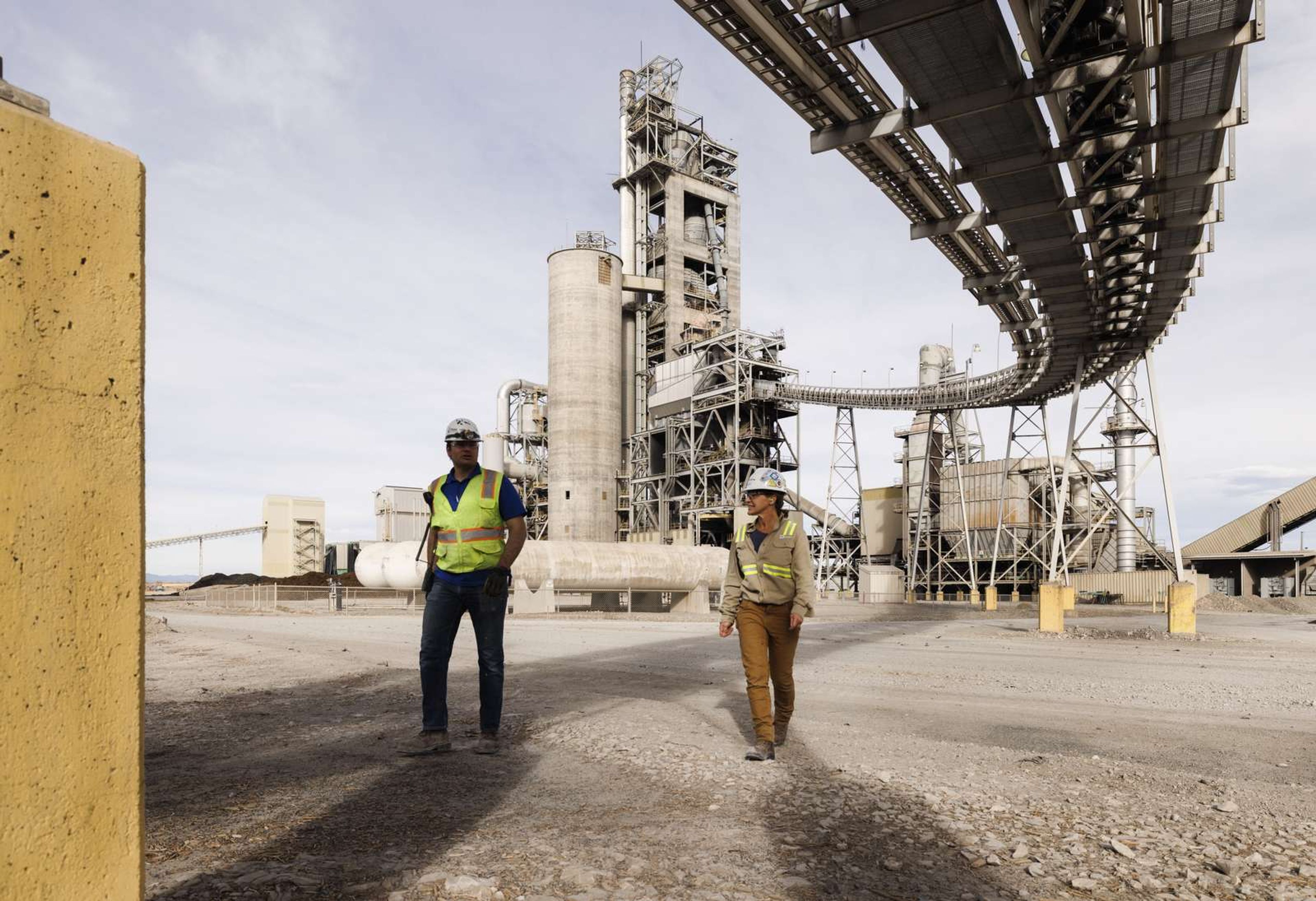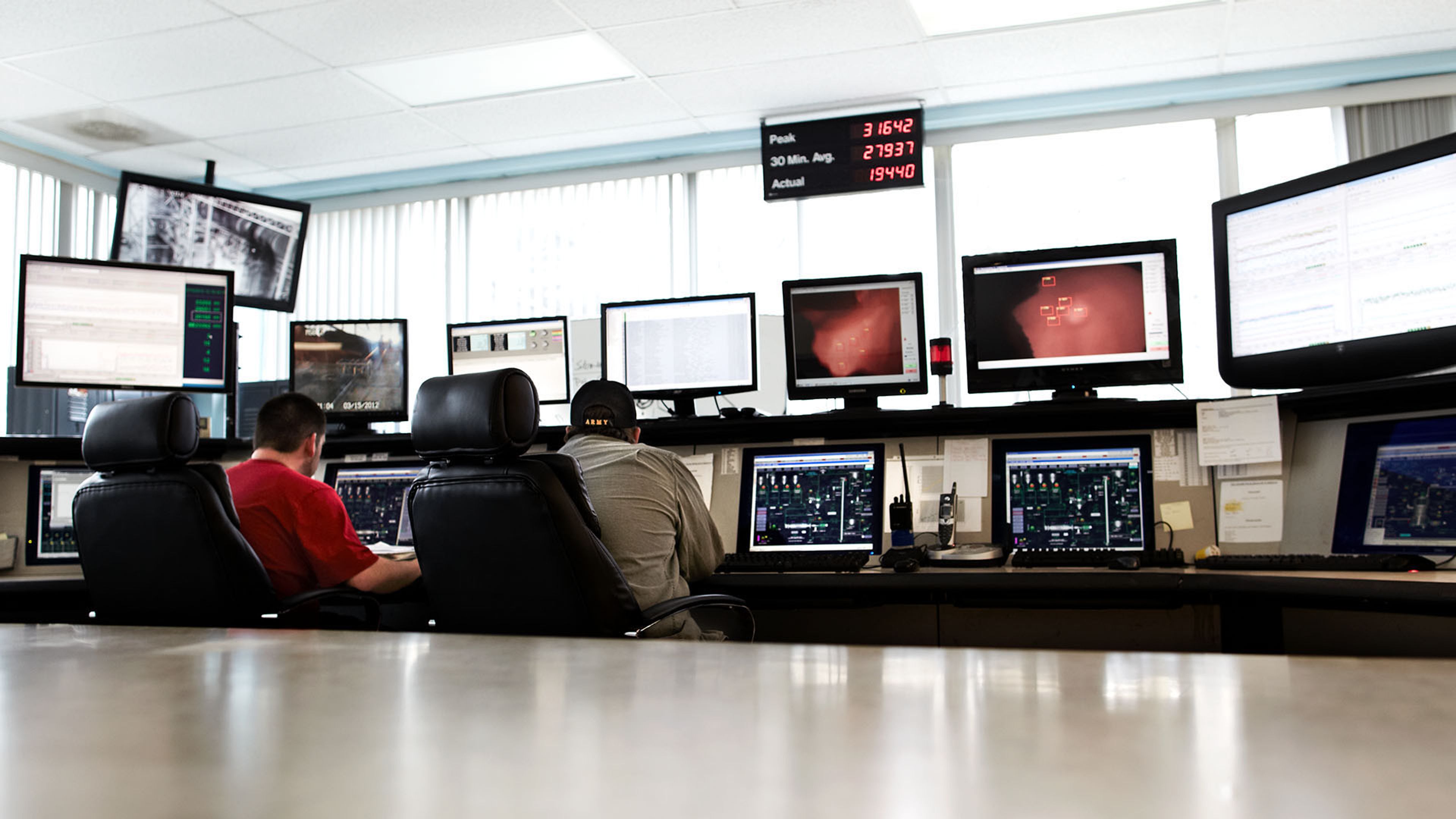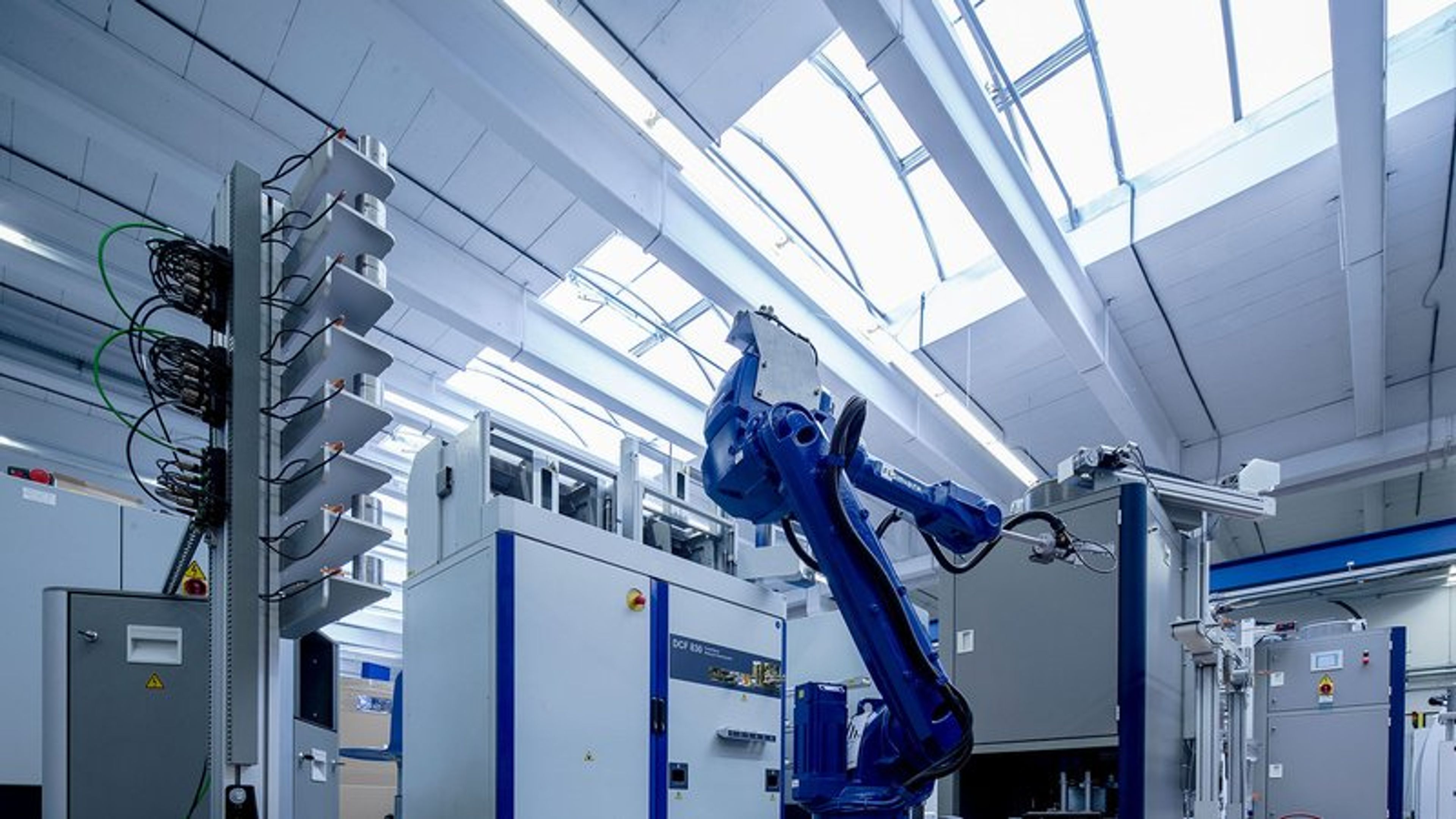3rd May 2025
webinar
Industry 4.0 in action: practical benefits in cement plants - presentation by Anders Noe Dam
This webinar is part of the Cemtech Live Webinar series, recorded 4 February 2025.
The global cement sector faces significant challenges: managing enormous energy consumption, reducing its substantial CO₂ footprint, and maintaining margins amid increasing process complexity and rising operational costs. While other industries have progressed to advanced digital implementation, cement production largely remains anchored in Industry 3.0 foundations—frameworks not designed for the data volumes, cloud connectivity, and AI-driven optimization that characterize Industry 4.0.
As Boston Consulting Group notes, "4.0 solutions can better manage the enormous energy consumption, rising cost challenges, and overall process complexity that are inherent to the industry." Yet many plants struggle with the transition, creating a widening performance gap between digital innovators and those with partial or siloed automation approaches.
A Data-Driven Blueprint for Next-Level Cement Operations
Anders Noe Dam's presentation shows how quality data forms the critical foundation for Industry 4.0. Sampling and laboratory data—what we call "the digital green enabler"—creates the bridge between conventional automation and advanced optimization for greener cement.
The session reveals how better sampling systems and lab automation enable both AI-driven process control and reduced clinker factors. We'll explore practical approaches to data readiness, open standards, cybersecurity, and subscription-based services that accelerate digital adoption, highlighting real-world examples of improved efficiency, energy use, and environmental performance.
Featuring:
Anders Noe Dam, Head of Global Product Management - Automation Technologies, whose direct field experience offers practical guidance in bringing digital innovation to the cement industry.
Key insights include:
- Why data quality forms the foundation of successful Industry 4.0 implementation
- How advanced sampling systems and laboratory data management enable quality optimization for greener cement production
- How the latest ECS/ProcessExpert v9.1 delivers 4-7% production improvements alongside a similar reduction in energy consumption through self-adaptive control
- Why moving from proprietary to open standards accelerates innovation and reduces costs
- How subscription-based service models provide faster access to innovations
- The critical need for secure plant-to-cloud connectivity with proper cybersecurity measures to enable remote operations and AI-driven optimization
Ready to transform your cement operations? Watch the full presentation for a practical roadmap to Industry 4.0 implementation.
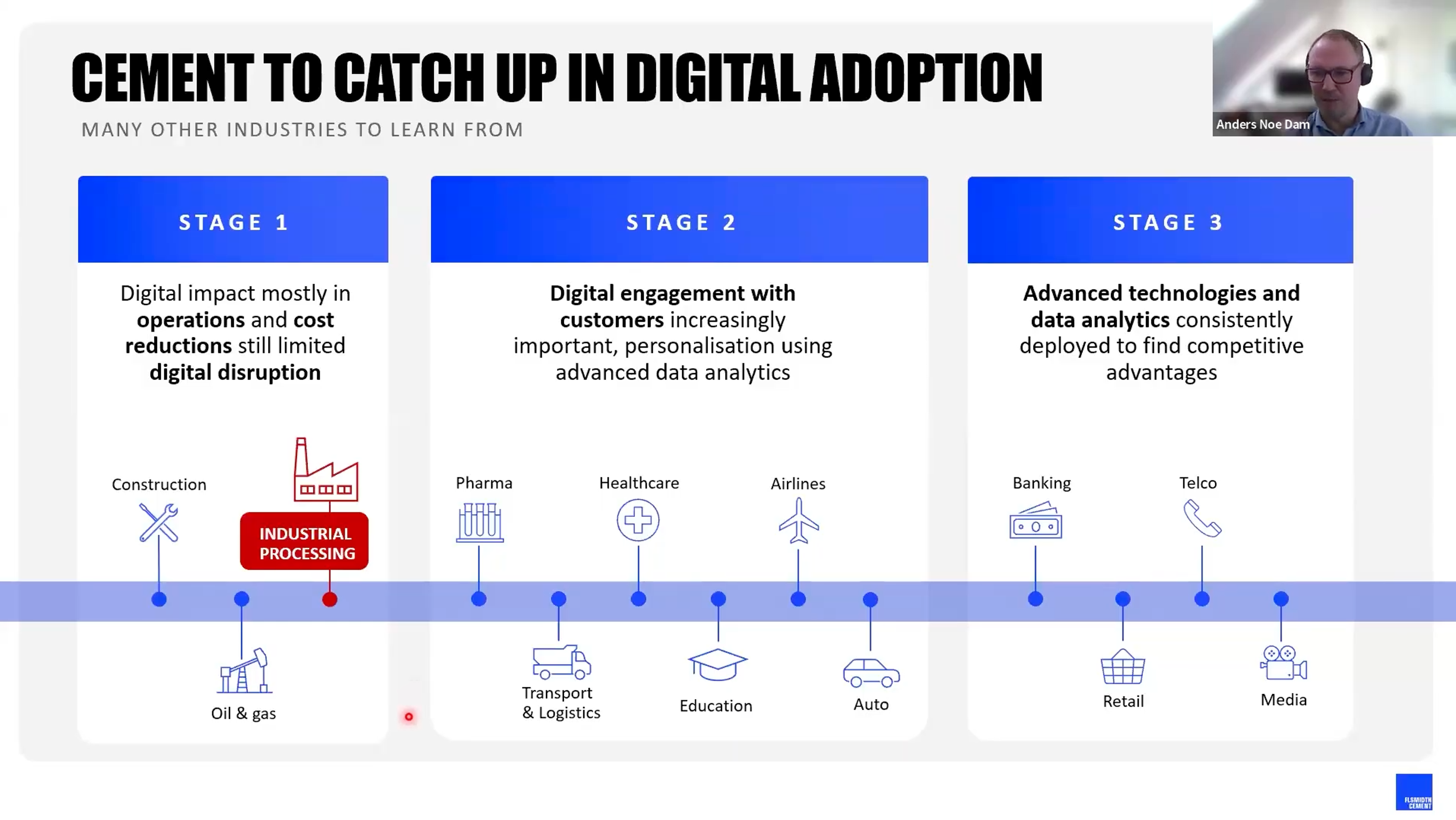
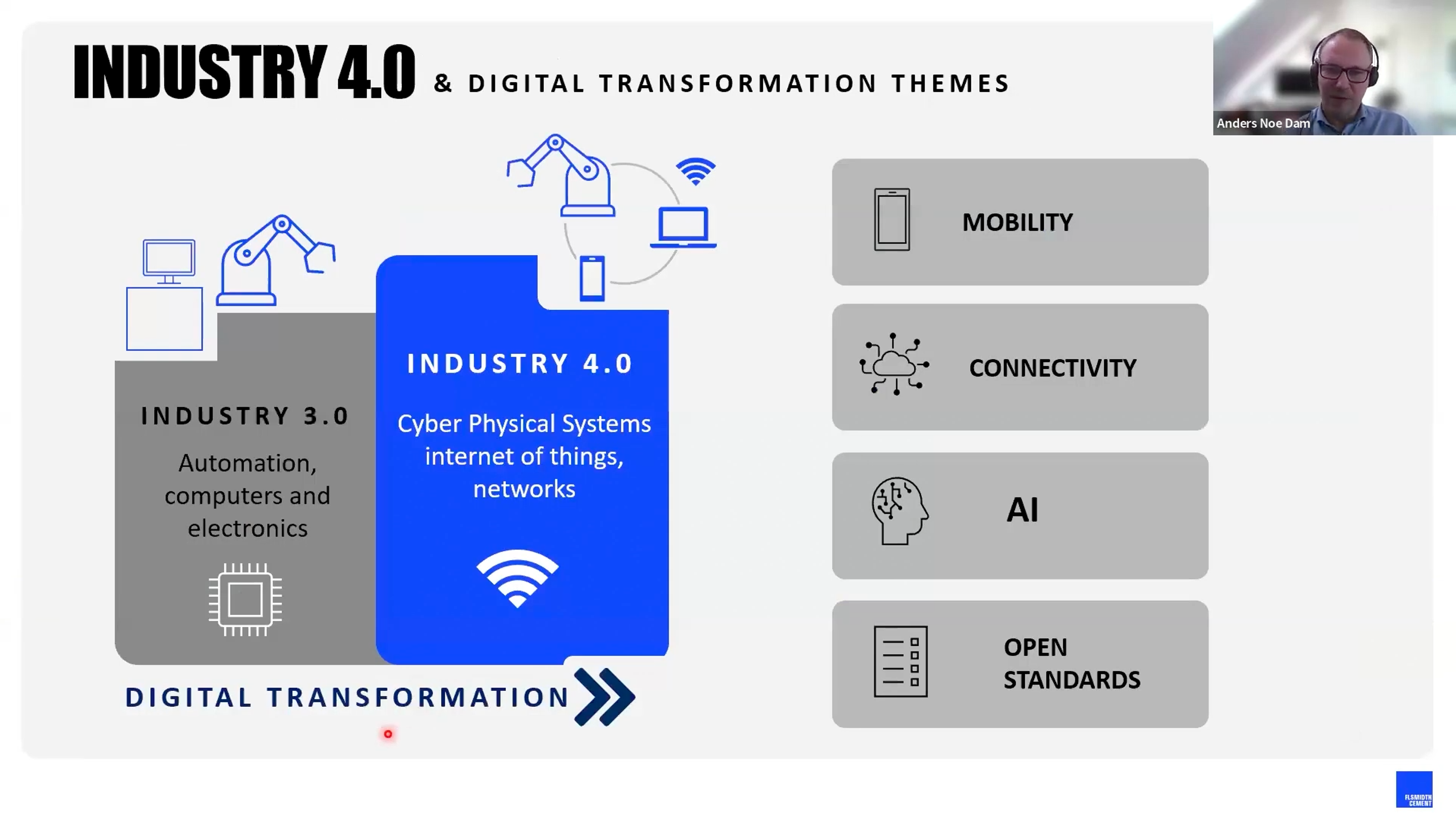
Anders Noe Dam, Head of Global Product Management - Automation Technologies
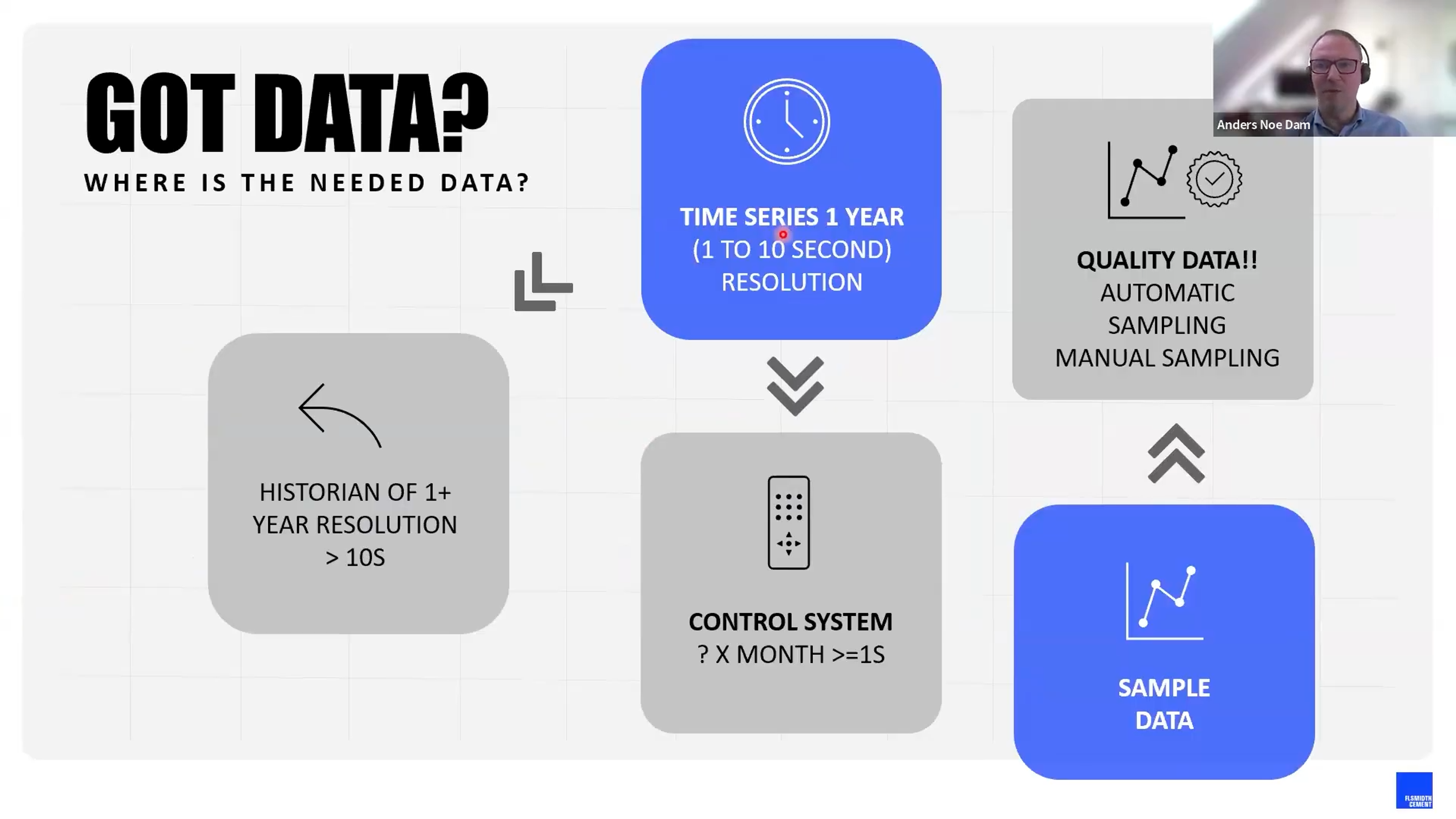
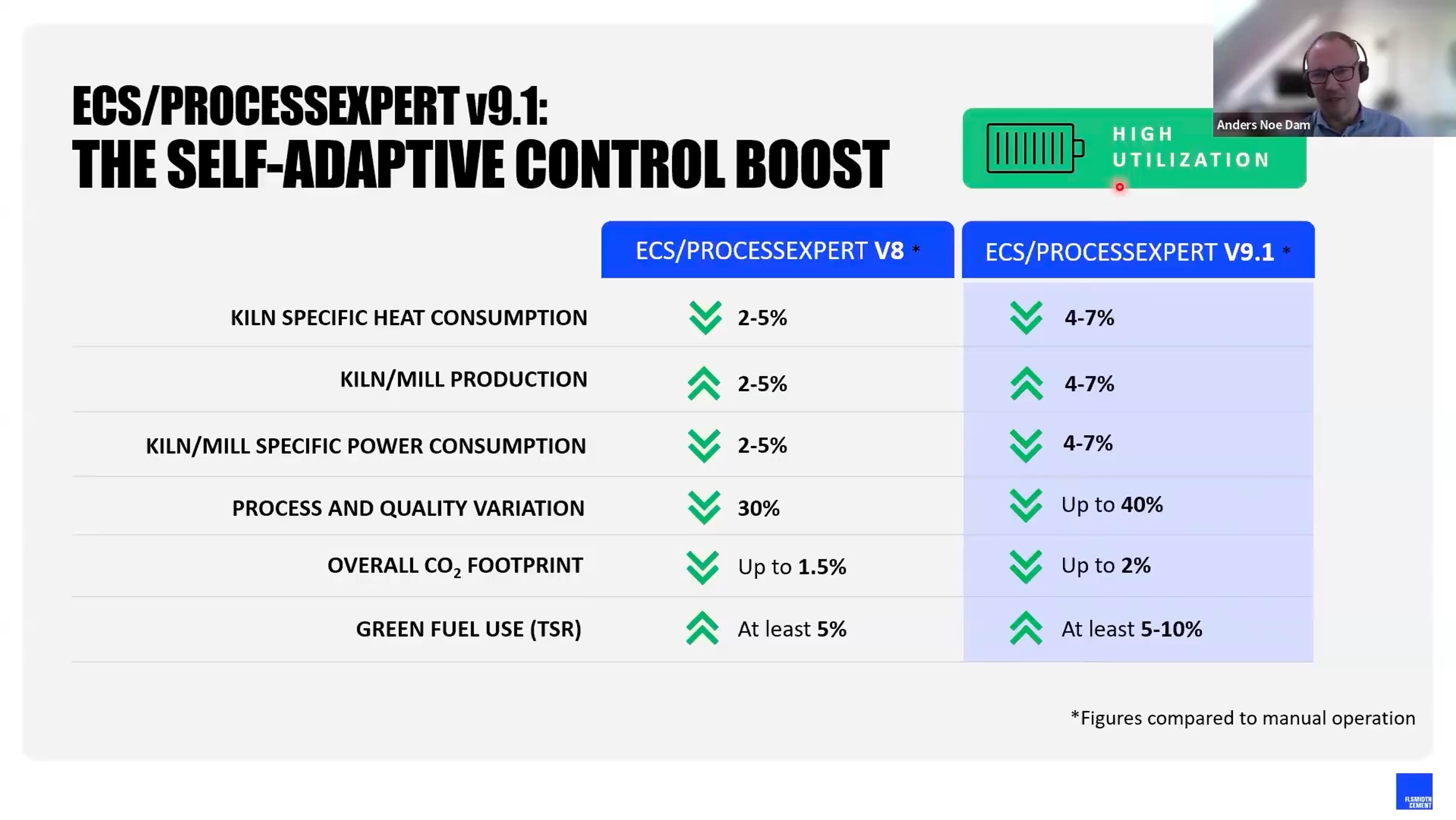
Industry 4.0 in action: practical benefits in cement plants
Data Quality: The Foundation for Industry 4.0
- Most cement plants lack the structured data foundation needed for advanced analytics
- For some applications, having a time series of one year at a 10 second resolution is necessary.
- Quality data from both automatic and manual sampling remains fragmented across systems
- Control systems often store only months of data while historians lack sufficient resolution
The data quality gap represents a critical chasm that many cement producers must overcome to successfully implement Industry 4.0 technologies at scale, as current fragmented data structures limit effective optimization.
Self-Adaptive Control Technology Delivers Measurable Gains
- ECS/ProcessExpert v9.1 increases production by 4-7% (compared to 2-5% in previous version) alongside a similar reduction in energy consumption
- Reduces process and quality variation by up to 40% (improved from 30% previously)
- Enables 5-10% increased use of alternative fuels while reducing CO₂ footprint by up to 2%
- Achieves higher user acceptance and system utilization through adaptive process management
FLSmidth Cement's integration of adaptive control technology delivers quantifiable performance improvements across all key cement production metrics while maintaining consistent implementation.
Open Standards Accelerate Industry 4.0 Adoption
- IT/OT convergence requires shifting from proprietary systems toward open standards
- Open Process Automation standards reduce costs through software-defined flexibility
- Vendor-neutral architectures enable faster integration of new technologies
- Cement industry lags behind other sectors partly due to closed system limitations
The contrast between Information Technology (open, standards-based, collaborative) and Operational Technology (closed, proprietary, vendor-locked) presents a fundamental challenge that cement producers must address through initiatives like the Open Process Automation Forum to enable seamless data flow.
The Digital Green Enabler: Quality Systems for Sustainable Cement
- Quality data systems provide the foundation for developing "green cement" algorithms
- Enhanced material understanding enables reduced clinker factor and associated emissions
- XRD analysis integration delivers deeper insights into supplementary cementitious materials
- Structured quality databases connect laboratory and process data for optimized formulations
Quality systems (QCX®) serve as the designated "Digital Green Enabler" by providing the chemical composition data necessary for precise material blending, allowing cement producers to control and optimize alternative materials while maintaining product performance specifications.
From Owning Software to Service-Based Models
- Software innovation cycles now outpace traditional upgrade models in industrial environments
- Subscription services provide continuous updates without high initial capital investment
- Plantline service agreements can include proactive performance monitoring and cybersecurity
- Service-based models ensure compatibility with latest cybersecurity requirements
The transition from perpetual licensing to subscription-based services represents a strategic shift for cement producers seeking to maintain competitive advantage through continuous access to the latest technological innovations rather than waiting years between major software upgrades.
Prescriptive maintenance from data insights
- Highest technology maturity among AI applications (process, quality, uptime)
- Provides early indication of equipment issues before they impact production
- Successfully demonstrated implementation across multiple sites
- Establishes framework for expanding predictive maintenance capabilities
Condition-based monitoring represents the most advanced and widely implemented Industry 4.0 technology in cement production, providing a proven entry point for digital transformation with established ROI while building operational confidence in data-driven decision making.



Transform Your Cement Operations with Industry 4.0: From Barriers to Benefits
Discover how FLSmidth Cement's proven approach helps cement producers overcome implementation challenges and realize tangible operational improvements. Learn how enhanced data quality, self-adaptive controls, and service-based models can deliver 4-7% production increases while reducing environmental impact.
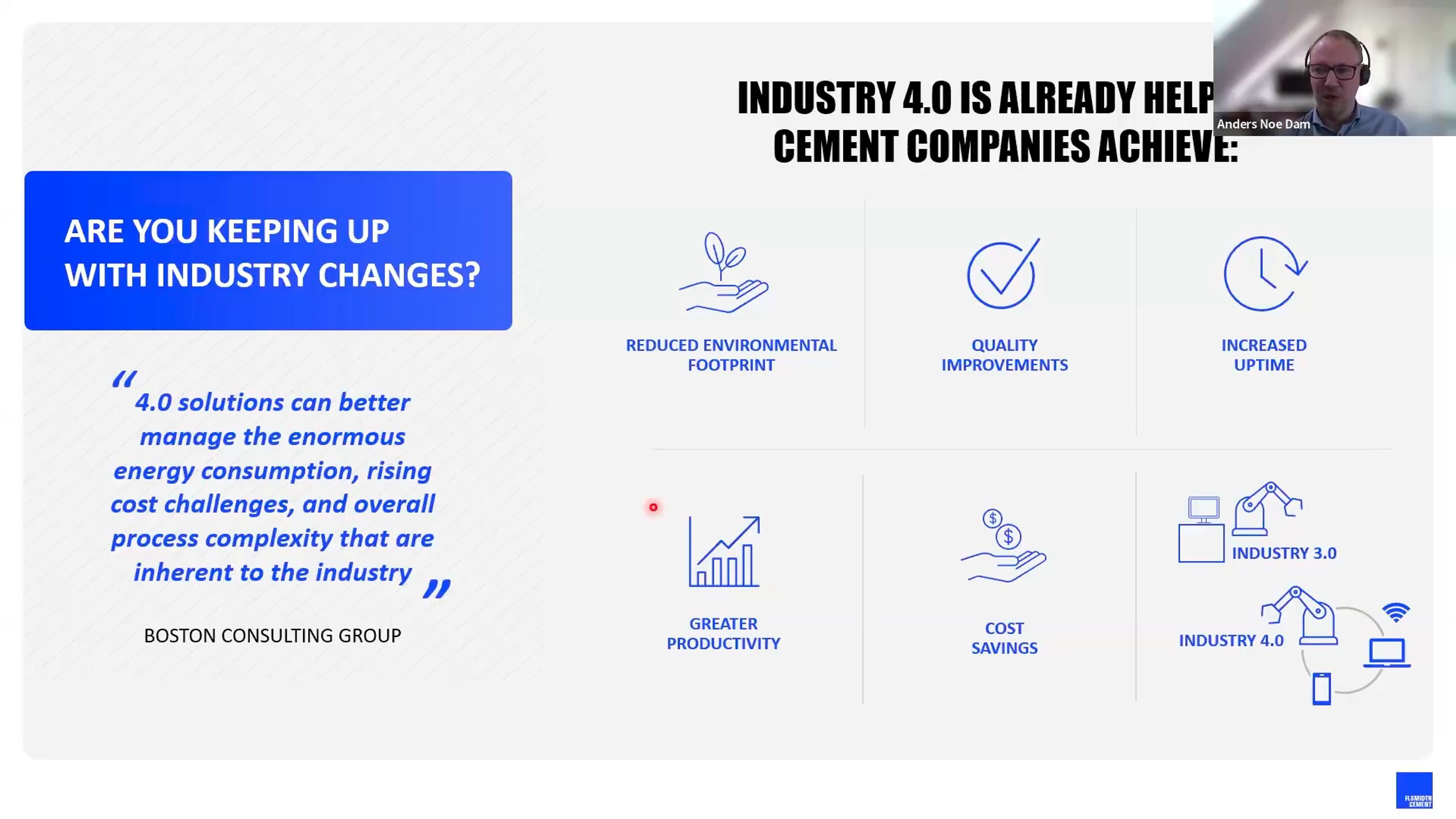
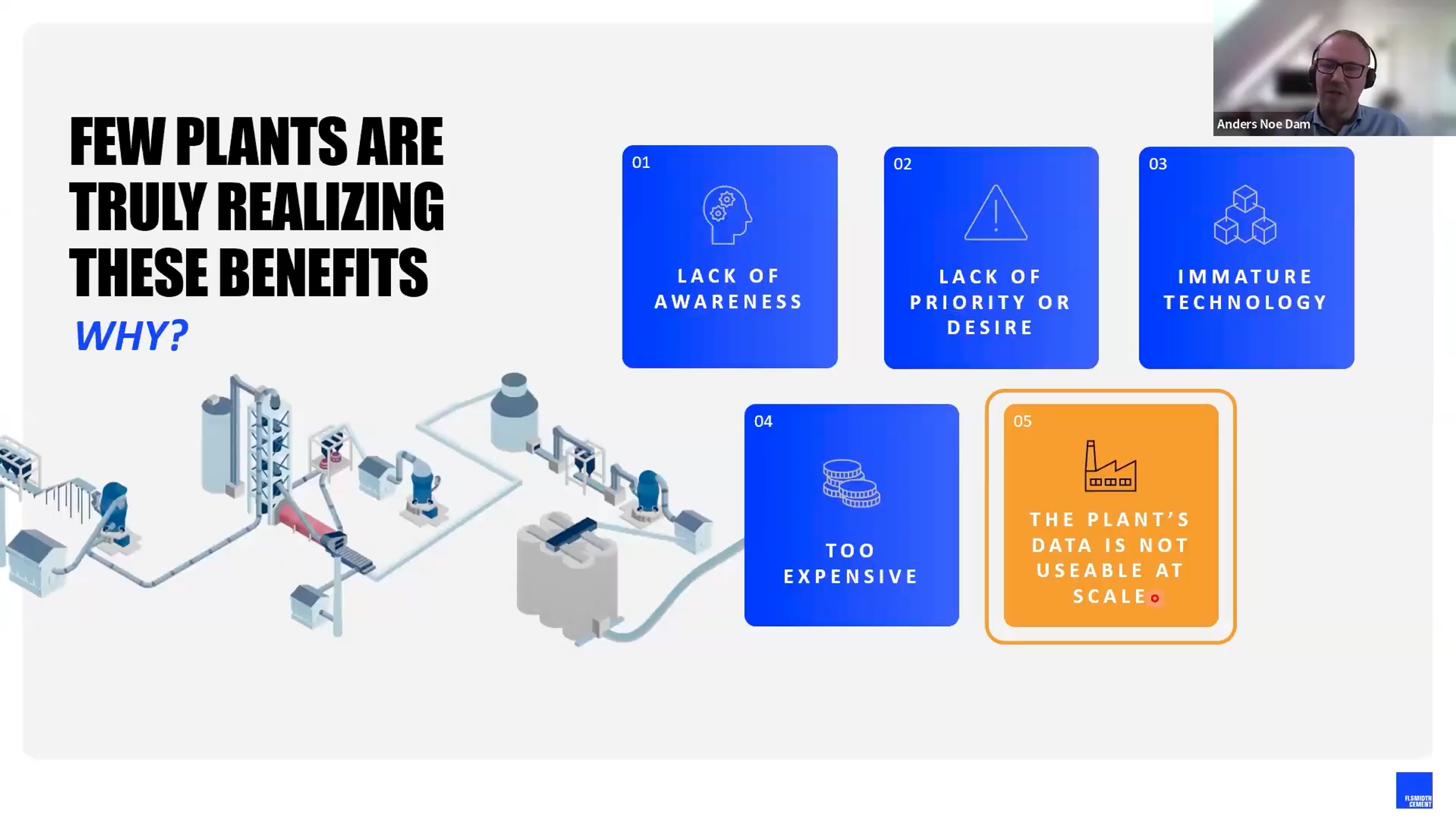
Bridging the Data-to-Value Chasm
Fragmented, low-resolution datasets remain the single biggest obstacle to Industry 4.0 success. “The plant’s data is not usable at scale” still tops the list of adoption barriers, leaving even the most promising analytics pilots starved of reliable inputs.
FLSmidth Cement’s automation platform is engineered to remove that bottleneck. Every ECS®ControlCenter installation automatically stores a full year of 1-second time-series data—exactly the depth and granularity advanced models require. Native MQTT connectors then stream those tags straight to the customer’s cloud (and return AI set-points to the DCS) through a hardened, cyber-secure gateway, enabling real-time collaboration between on-site operations and remote data-science teams.
Using open standards like OPC UA and MQTT, data streams securely to the cloud through a cyber-hardened gateway. Returning AI setpoints to the control system is optional, enabling either passive monitoring or real-time optimization.
FLSmidth Cement supports the adoption of open-standard initiatives such as the Open Process Automation™ Forum standards to promote vendor-neutral OT architectures that speed innovation, cut lifecycle cost and embed security by design.
Anders Noe Dam, Head of Global Product Management - Automation Technologies
Related Offerings
Products (5)
Solutions (1)
Services (3)
Expert Insights Q&A
Frequently Asked Questions: Industry 4.0 in Action





.png?w=1080&q=80&auto=format)
